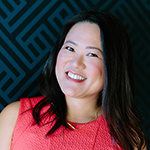I’ve had this conversation a dozen times the past week:
“Can you believe that Amy Chua?”
“That book is outrageous There’s no way I’m reading it!”
“Are you done with your copy? Can I borrow it?”
Really. For many of my Asian American friends, Amy Chua’s “Why Chinese Mothers are Superior” essay in the Wall Street Journal set off a visceral reaction: crazy, unfounded, abusive, and racist are words that have been slung around in conversations and on the internet.
Yet, this vehement reaction to the article goes hand in hand with a non-stop soundtrack of opinions surrounding Amy Chua, Asian immigrant parents, elite academic institutions and our own childhoods. After a day or two of initial reactions, some Asian American bloggers were calling for people to move on. But we can’t. I admit, I have a hard time not ruminating over the whole phenomenon.
Why? Because there’s a whole generation of — highly successful — Asian Americans who have kept this bottled up for 30… 40 years. During my adolescence, I was fortunate enough to be part of a Taiwanese American youth group. At summer camps and Lunar New Year’s parties, we put on light-hearted skits about our parents’ mispronunciations, penny pinching habits, or comparisons to their friends’ kids. While a fun release valve for the pressure-cookers some of us faced at home, there were no solutions, aside from the camaraderie of friends and the advice, “That’s how your parents show that they love you”.
As second generation Asian Americans, and Generation Xers, we soldiered on into the good doctors, lawyers, engineers of the world (at least some of us). After all, what would Alex P. Keaton do?
But now Amy Chua goes and writes her memoir detailing the dinners she withholds and the toys she threatens to destroy, if her daughters do not practice their violin and piano. “Mmm hmm, the piano lessons!” educated Asian American women around the country are nodding in agreement. Don’t get me started on that!
And the other question, being whispered from Boston to Palo Alto: “Have you asked your mother what she thinks of all this?”
I, for one, have to admit that I haven’t broached that topic. Our conversations surrounding the “Joy Luck Club” are still smarting. But maybe, if anything, the conversations started by this whole issue will come around to some kind of fruitful discussion.
And just in case you haven’t read the latest round-up of articles:
Amy Chua’s daughter writes I Love My Mom (and I want to eat dinner tonight)
David Brooks says, Amy Chua is a Wimp. You want a real challenge? Send your teenager to a slumber party.
And to end on a light note: Tiger Mom Says Tumblr

I’m curious, what happens when the children of such parents do not succeed? Not everybody is gifted or even above average, So what happens to them? Are they rejected by the family? Are they reviled? Better be nice to your kids, they’ll choose your nursing home!
Good question. There’s been a lot of talk lately about the high suicide rates in Asian American young women. Hyphen magazine had a good response article by someone who made an attempt. Also, Cal State Fullerton had a article. I can post it for you if you can’t find the link. While most people don’t attempt to take their own lives, there’s a lot of bottled up unhappiness and bad relationships, as a result… no doubt being dredged up as a result of this discussion.
Thanks for stopping by, Erik!
Really interesting. I read Chua’s article and wasn’t too fond of it, but it’s definitely an interesting read. I’m definitely an advocate for nurturing and peaceful motivation, but I get her point about making choices for our children and being strict when necessary. I think as a parent though, part of your job is knowing which points are more important to make and which can be more relaxed. I feel her frustration though on getting your kids to understand the importance of academics, but letter grades aren’t the only place where kids can excel. Thanks for posting….really great topic!
My initial reaction to Ms. Chua’s article was, shall we say, violent. I still feel the “fight or flight” switch flip on whenever the article is mentioned.
I feel like those parenting tactics are especially hard on children with only one parent practicing them, for example, children of multicultural families. They can see the difference in the way they’re treated by each side of the family and rather than being able to appreciate both sides, may cut themselves off from one side or the other.
Chantilly- Yes, balance is the key!
Marni- That’s a good point, about multicultural families, where one parent is stricter than the other… or whether the culture is less “fun”. You can see that in the anecdotes in Chua’s book, where the dad exists as sort of the good cop who is always telling her to back down and take it easy. I hadn’t thought about children cutting themselves off from one side… but I’m sure that could be a big issue in the adolescence. It will be interesting to see what happens when all the mixed-race kids who are now young reach their teen years.